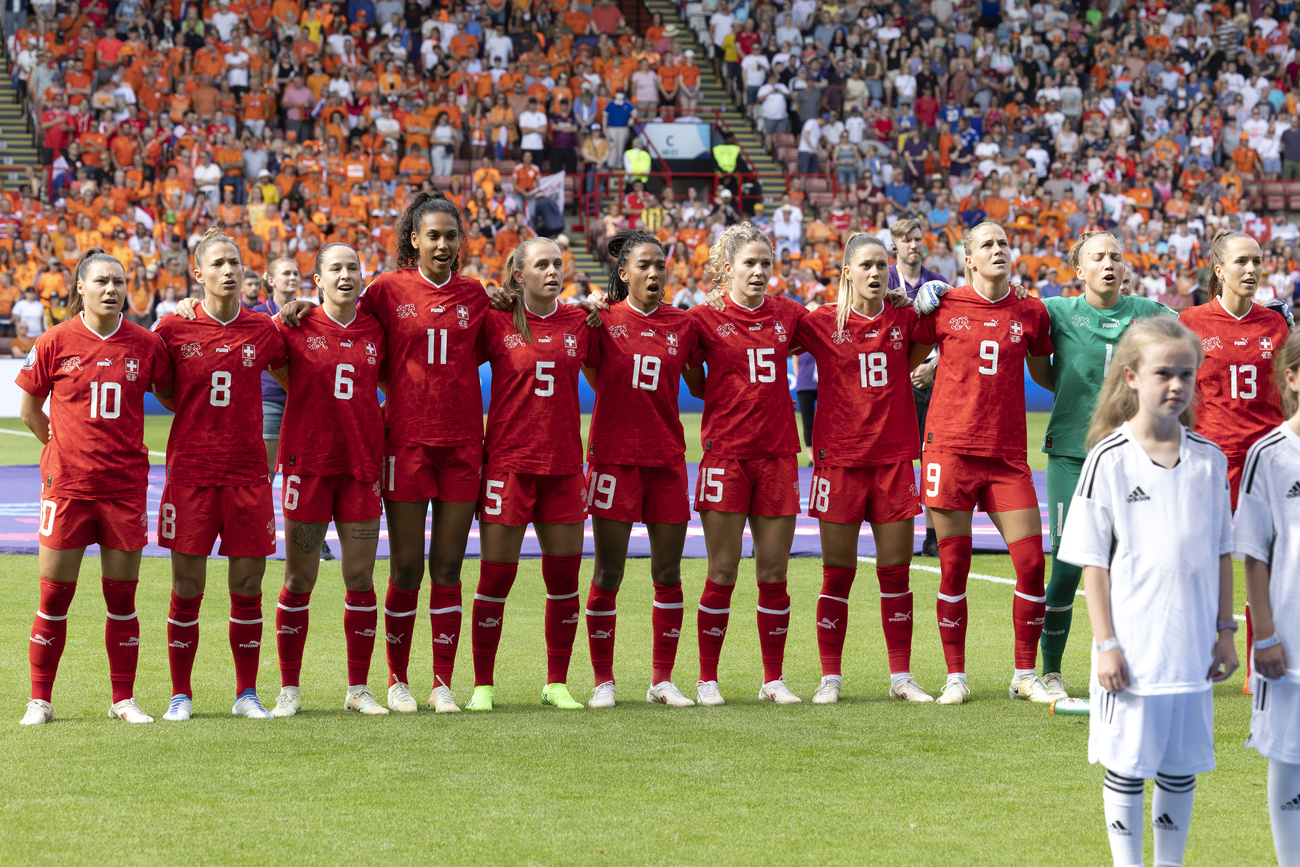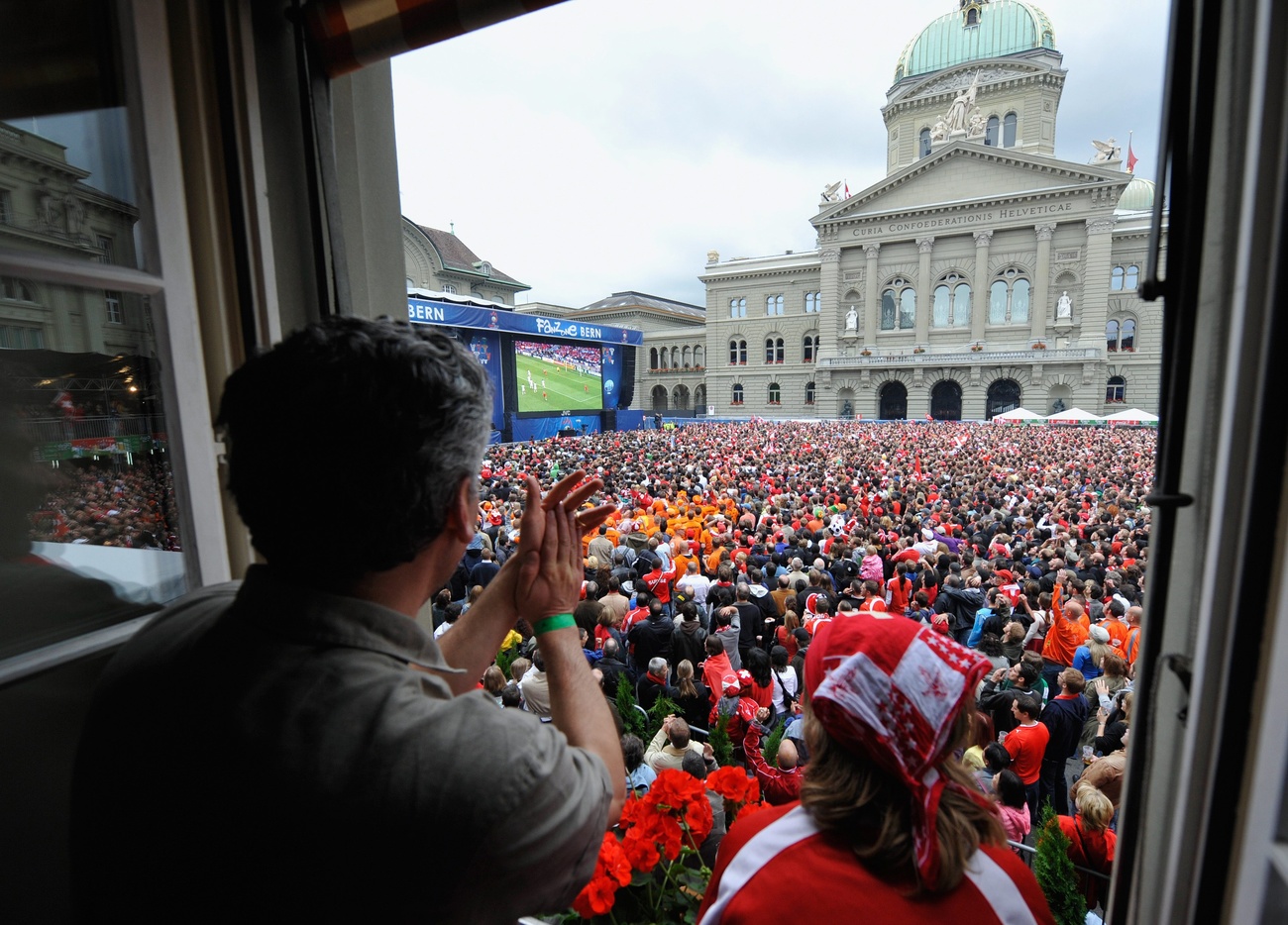
Spectators found to have biased view of women’s football

The way in which women’s football is viewed is skewed by gender stereotypes, according to a Swiss study which asked 600 people to watch videos of the best male and female goals of the 2019 season. Some of the videos were blurred to anonymise the gender of the players.
“Many people assume that men’s sports are simply better than women’s sports because men tend to be taller, stronger and faster,” says Carlos Gómez González of the University of Zurich and author of the study.
“However, the existence of stereotypes should alert us to another possibility: what if perceived quality is filtered through gender stereotypes?” he said in a statementExternal link on Thursday.
Working with colleagues in the US and Norway, Gómez González wanted to quantify gender bias in football. The scientists recruited 613 participants – 337 men and 276 women with an average age of 34 – and divided them into two groups.
The participants were shown ten videos of world-class men’s and women’s football, each lasting between five and 14 seconds. These were some of the most-watched goals of 2019 on television or on social media. For one of the groups, the videos were blurred so the viewers could not tell whether the players were male or female.
On the unblurred videos, the assessment of the men’s sporting performance was significantly higher than that of the women (4.0 compared with 3.8 on a scale of 5). With the blurred videos, no difference was observed between the two groups (3.5).

More
Men’s and women’s football: same play, different pay
Consequences
According to the authors, the lower overall score is due to the blurring itself, which is detrimental to perceived quality. The study also showed that men gave lower ratings when they knew they were watching women’s football.
For the researchers, these results confirm the fact that in male-dominated sports, gender stereotypes lead to a poorer assessment of women’s athletic performance. For women’s football, this has consequences in terms of media coverage, investment and economic potential.
The FIFA women’s world cup, being held in Australia and New Zealand, starts on July 20. In the group stageExternal link Switzerland face the Philippines, Norway and New Zealand.

More
Switzerland to host Women’s Euro 2025

In compliance with the JTI standards
More: SWI swissinfo.ch certified by the Journalism Trust Initiative































You can find an overview of ongoing debates with our journalists here . Please join us!
If you want to start a conversation about a topic raised in this article or want to report factual errors, email us at english@swissinfo.ch.